From exile to military doctor: the story of retired Colonel Dr Devanathan Veeran Perumal
Serving the people
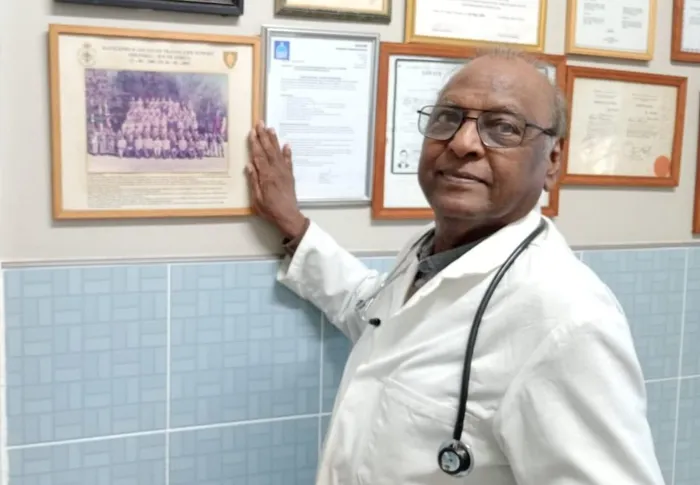
Retired Colonel Dr Devanathan Veeran Perumal, now runs his private medical practice in Phoenix. Durban.
Image: Nadia Khan
WITH a passion to fight for the rights of people during the apartheid era, at just 16-years-old, retired Colonel Dr Devanathan Veeran Perumal began his journey in political activism.
The now 80-year-old of Mount Edgecombe, who was exiled, would later become a medical doctor and serve in the then-South African Defence Force (now South African National Defence Force).
Childhood
Perumal, who hails from Derby Street in Durban Central, was born on August 26, 1944.
He is one of 11 children, to parents Veeran, who worked as a barman, and Gengama, a housewife.
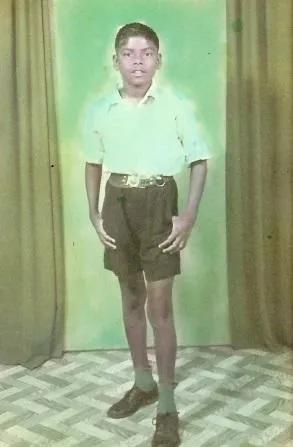
Perumal at age 12.
Image: Supplied
“I had a wonderful childhood, especially with my siblings. I had seven brothers and three sisters. I never felt alone. We spent hours playing outside together and exploring the city.”
Education
Perumal said he attended the then-Hindu Tamil Government Aided Indian School from Class 1 to Standard 6 (Grade 8). He thereafter attended Clairwood High School in Standard 7 (Grade 9). However, he transferred to Sastri College mid-year.
Political activism
He said as a young boy he was exposed to politics.
“Since we lived in Durban Central, we witnessed the big meetings that happened in Red Square, Curries Fountain and Lakhani Chambers. At the time, these were the meeting points for the Natal Indian Congress, Natal Indian Youth Congress, Congress of Trade Unions and the African National Congress.
“I remember while I was in Standard six, my elder brother George took me to a meeting held by the Natal Indian Youth Congress. From then I was drawn into politics. Once I joined, I started attending meetings regularly and became actively involved. At the weekend, I went out with them to the townships, distributed anti-government pamphlets and spoke to the people. We also went out at night and did slogan-painting. I also joined the protests."
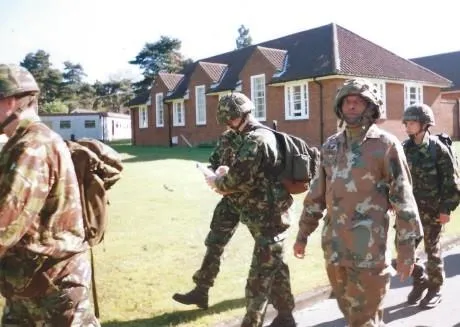
Perumal together with the British soldiers, while training in Battlefield Advanced Trauma Life Support at the army base in the United Kingdom in 2001.
Image: Supplied
Perumal said he was first arrested in the early 1960s.
“We found out that the Minister of Indian Affairs would be giving a talk to the children at Clairwood High School. We decided to protest, so other members of the youth congress and I climbed over the school walls. We made a noise and demanded he leave. The police arrived and they arrested Arvind Desai, who was the youth congress’ chairperson, and I. We were taken to the police station and charged for trespassing.
“However, our fellow comrades were outside and they got us an attorney, Rowley Israel Arenstein, who was quite well-known. He always stood for us. I don't know what discussions were held but we were told to plead guilty to the charge and shortly thereafter, we were released. But the arrest did not deter me. I was motivated to continue in the fight for freedom."
Perumal said following his arrest, he was targeted by the Security Branch.
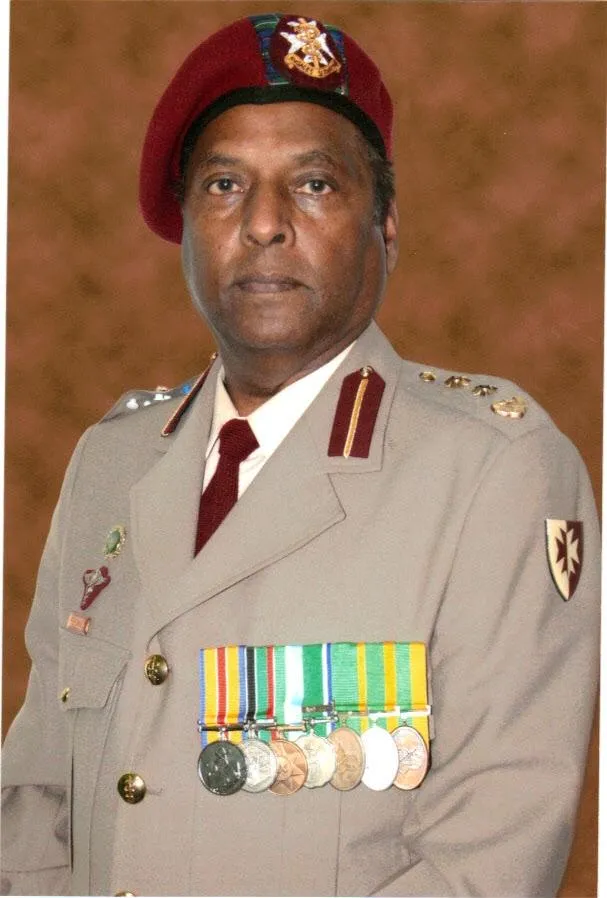
Perumal, who served in the South African National Defence Force’s Military Health Service, retired at age 70.
Image: Supplied
“By then they knew who I was and kept coming to our area to ‘keep an eye’ on me. Our street was under watch. If anything happened anywhere, such as slogan-painting, they came to my house looking for me. But I was smart. I was always home before they arrived.”
Perumal said he was approached to join uMkhonto weSizwe (MK), the military wing of the ANC, in 1962.
“I was approached by the now late Ebrahim Ismail Ebrahim (anti-apartheid activist). He said the ANC decided to go into the arms struggle and they wanted me to join. I gladly accepted. At the time, I was also told by the school not to return. I wasn’t told why, but I know it was probably related to my activism. I also wasn’t interested in going to school at that time. During this time, I started work at a clothing factory. At the time, Baboo Seedat, who was also an activist, was my manager.
“As a member of the MK, we carried out about four attacks in and around Durban. Together with my unit - there were four of us - our first successful attack was the Victoria Street Bridge on March 21, 1962."
Exile
Perumal said shortly thereafter he was arrested and exiled.
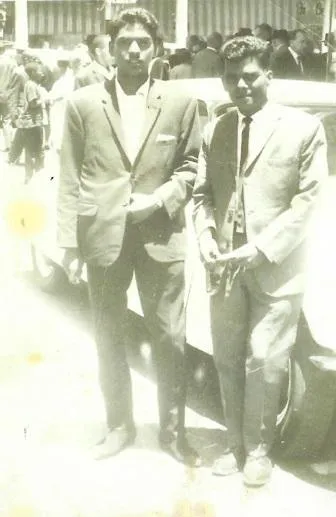
At age 20, Perumal, left, with childhood friend, Strini Coopasamy, in Johannesburg.
Image: Supplied
“I was at work at the front of the factory, when three policemen from the Special Branch stormed in. They were looking for me. When I told them I was the one, they arrested me but they first took me to my home. They searched my home and found books on Guerrilla warfare and those written by Che Guevara as well as a baton. The baton, however, belonged to my father.
“I still remember they hit me using the baton all the way to the police station. After a while, I was released and then had to leave the country. There was a white man, who used to work for the Chamber of Commerce who helped me. I didn’t have any documents, just an exit permit. On December 24, 1964, I left for London. My elder brother was living there at the time. There were also many other South Africans living there - many whom were actively involved in the anti-apartheid movement.”
Living abroad
Perumal said he worked various jobs, including in factories and restaurants, while he completed high school doing evening classes.
“During this time I was also applying to complete matric and study further at a university in Russia. The South African Communist Party and ANC helped me to get into Russia. I completed matric and then studied for six-years to complete my MD (Doctor of Medicine degree) at the Patrice Lumumba Peoples' Friendship University of Russia (RUDN).
“Growing up, I liked two things - medicine and law. However, I chose medicine as my goal was to be a military doctor in one of the MK camps in Africa."
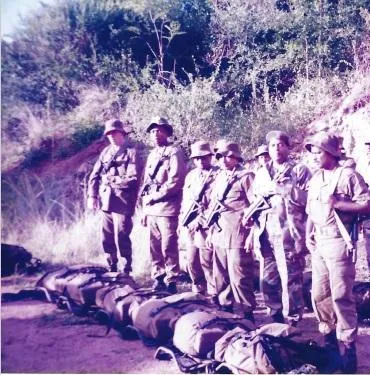
During military bush training in a forest in Kwa-Zulu Natal in the 1990s.
Image: Supplied
Perumal added that while studying in Russia, he became the president of the South African Students Union in Moscow.
“I was invited to events and was the voice for the South African students. I also worked for Radio Moscow.”
Perumal said after completing his studies, he returned to London.
“I got a job doing marketing for a pharmaceutical company. While working, I completed my degree in tropical medicine and hygiene at the London School of Hygiene and Tropical Medicine.”
Return to South Africa
Perumal said he was left devastated as both his parents had died while he was abroad, and he was unable to attend their funerals.
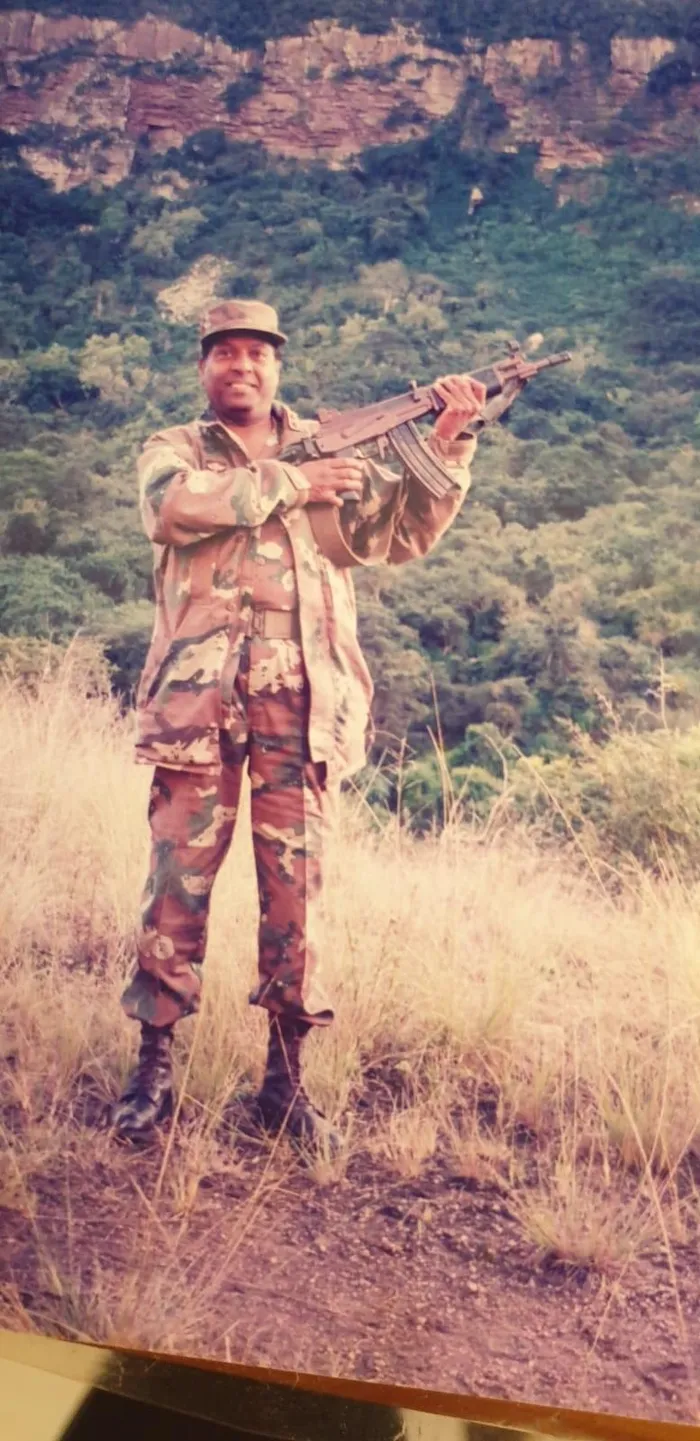
Training at the Bluff shooting range in the late 1990s.
Image: Supplied
“My father passed away first. However, I could not return home as the Security Branch would not let me. But when my mother passed away, I did not care about what happened to me. I just wanted to return for her funeral.
“My family went to the Ministry of Home Affairs to get me a passport, but they were told that ‘if he puts his foot here, we are going to lock him up’. I didn’t listen and told myself they can do what they want, I am going to my mother’s funeral. I went to the airport and bought a ticket. Just before I left, I called my family to tell them I am coming home.
"They told me, ‘don’t ever come back, they are waiting for you at the airport’. My family also went through a hard time, even after I went into exile as the Security Branch visted our house regularly. They kept an eye on the family all the time."
Perumal said he was able to visit South Africa in 1989 and moved back in 1991.
“A few weeks later, I received a call from a man with a strong Afrikaans accent. He said he was from the South African Embassy. He told me that I was now allowed to visit South Africa. It was during that time that the government and ANC were in negotiations. They said all those who were in exile must now return. I bought my ticket straight-away and visited for the first time in over 20 years. Two years later, I returned home.”
Military
Perumal said upon his return, he worked at various hospitals and opened his private practice.
He said in the early 1990s, he joined the then-South African Defence Force.
“I was asked to join as I was a member of the MK. There was an agreement between the ANC and MK. The MK would disband and its members would join the SADF.”
Perumal said as a qualified medical doctor and his years of service with the MK, he joined with the rank of lieutenant-colonel and was later promoted to colonel.
He said he joined as a medical officer within the SA Military Health Service.
“I thereafter became a senior Staff Officer 1 Med for the area military health authority in KwaZulu-Natal (KZN). I was the confirming authority for medicals. A soldier's medical report came to me after they were examined by doctors, and I checked and confirmed whether they were fit or unfit to join the military service, or for deployment.
“I later became the Officer Commander of 1 Medical Battalion Group. Our duty was to give medical support to all of the armed forces in and around KZN. I retired from the military at age 70.”
Highlights
Perumal said among the highlights of his career was being sent to train in Battlefield Advanced Trauma Life Support at the army base in the United Kingdom in 2001.
“It was quite an exciting experience as I got to train with British soldiers. I was also given the opportunity to accompany the late former president Nelson Mandela as his doctor for a day during one of his trips around Durban. However, I had first met him when he was on the run in the 1960s. I still recall, he came to one of the areas and spoke to the youth about being the future leaders of the country. This meeting blew my mind and it motivated me to become more committed to the freedom struggle.
“The overall highlight, however, was the values that being in the military had taught me. Being in the military is about serving the people. You have to serve selflessly, be honest and disciplined. To join the military, you must be passionate about wanting to help others and be ready to work hard, it is no easy ride."
Family
Perumal married Lolita, a retired teacher, and has two children, Nerisha, a law graduate, and Niven, a final year IT student.
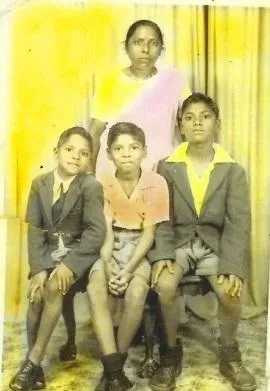
Perumal (center), with his mother, Gengama, and brothers Loganathan (left) and Krishna.
Image: Supplied
Retirement
Perumal said while he may be retired from the military, he continued to run his private medical practice in Phoenix.
“I think I will continue to serve the people until my dying days. From a young boy, I have been passionate about helping others - first was in the fight for freedom, and now those that are sick. In addition, to date, I am still the preferred medical provider in the north for military veterans.”
Perumal said when he was not working, he enjoyed trying new restaurants, watching TV and travelling around the world.
* The South African Indian Legion (SAIL) of Military Veterans will host a lecture on “The Role of Indians in the South African Military” at the Ditsong National Museum of Military History in Saxonwold, Johannesburg, on May 25, from 12.30pm to 2pm. The lecture will encompass an overview of the Indian participation in the military over the last 120 years. For more information, or if you would like to document your family’s military history, call 084 450 4892.
